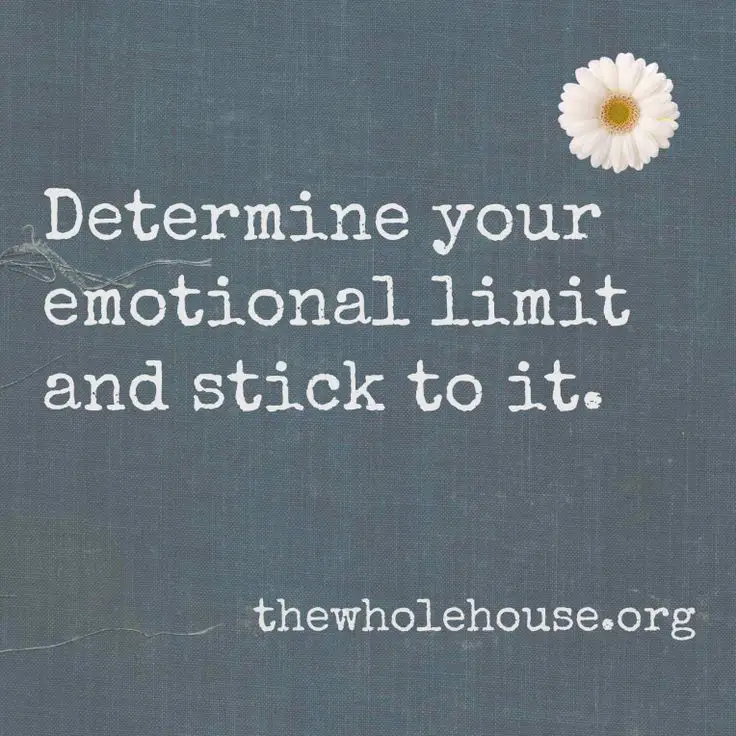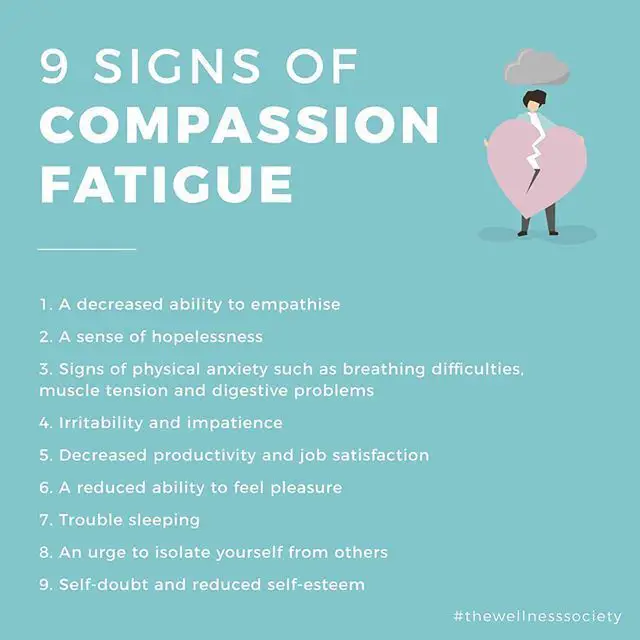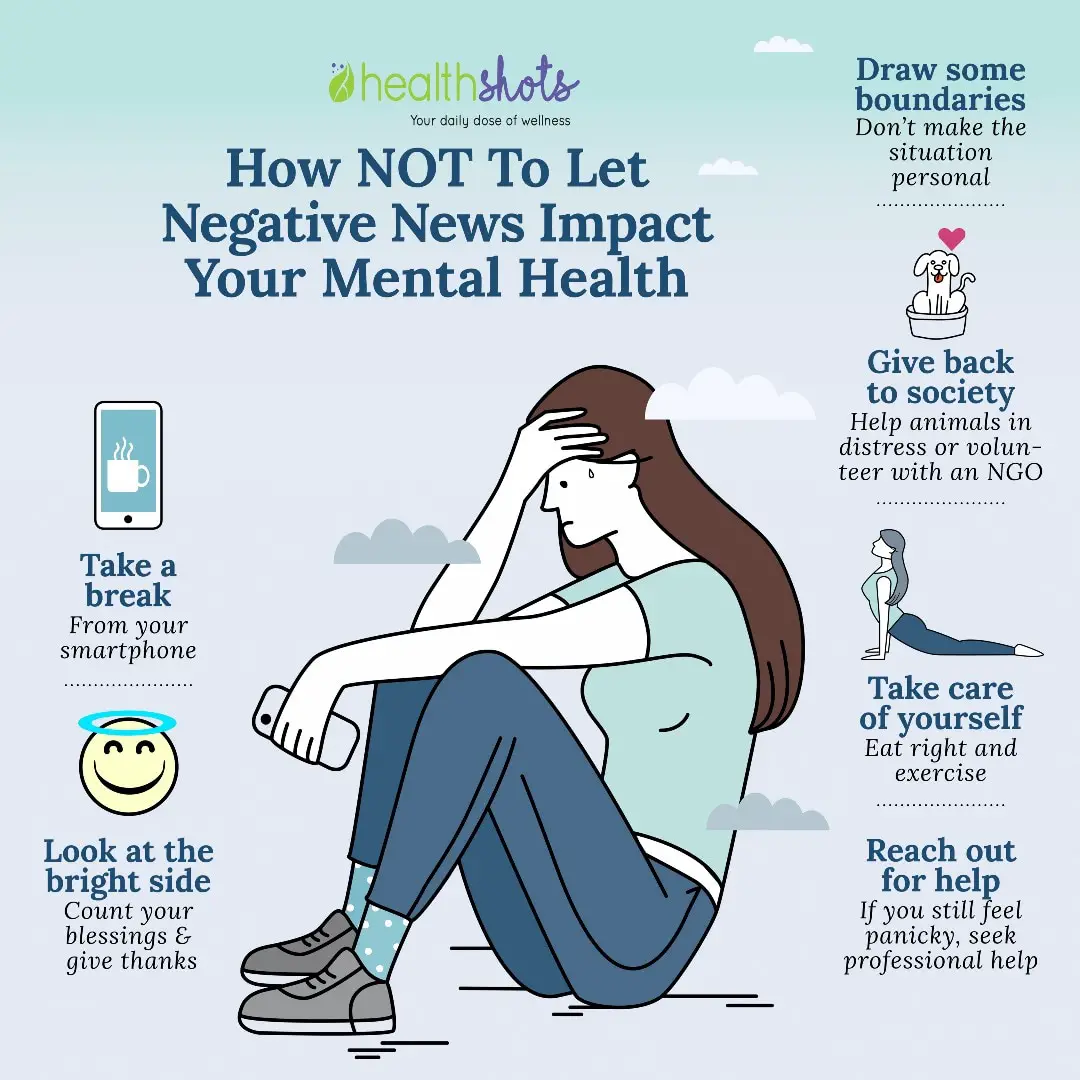Difficulty Sleeping Or Staying Awake
Having trouble getting through the day is one of the most common symptoms of emotional exhaustion. Individuals with this condition often report feeling physically and emotionally tired, and experience a sense of dread or discomfort when thinking about upcoming obligations. For some people, fatigue persists all day, regardless of how many hours they sleep at night. Fatigue can be exacerbated by poor sleep quality, and insomnia tends to worsen during periods of emotional exhaustion. This can lead to a cycle of daytime fatigue and poor sleep that is often difficult to break without the help of an experienced medical or mental health professional.
Meet With A Professional
Along with making lifestyle changes, its important to seek professional help to treat emotional exhaustion. A professional, such as a therapist, can give you the tools you need to work through a stressful period. Some of the techniques used by professionals include:
- cognitive behavioral therapy , a form of psychotherapy, also known as talk therapy
- applied relaxation techniques
Consider Injections Instead Of Pills
Sometimes the same drug can affect you in different ways depending on the method in which it is administered, Dr. Cohen says. Take methotrexate, for instance with pills you may have to use more medication to get the therapeutic dose because it has to pass through the entire gastrointestinal tract, she explains. Using an intramuscular injection often allows us to use less medication as it goes directly to your bloodstream. This may help lessen side effects such as fatigue for some patients. Read more common questions about methotrexate.
Also Check: Doctors Specializing In Chronic Fatigue Syndrome
Don’t Miss: Long-term Effects Of Mononucleosis Chronic Fatigue Syndrome
Seek Out Support From A Mental Health Professional
Accessing therapy to talk about your concerns and to learn how to build your coping skills is important for improving your symptoms and helping you get back to your life in the way you want to. Contacting a therapist when you first recognize signs of burnout can help you avoid mild or high functioning depression. It can be helpful to use an online therapist directory to search for a therapist who offers stress reduction therapy.
Which Careers Are More At Risk Of Emotional Exhaustion

Anyone in any career can feel emotionally drained. But those in stressful or demanding jobs are more likely to experience it than others.
Here are five professions that are more at risk of emotional exhaustion:
Read Also: How To Fight Extreme Fatigue
How These Symptoms Can Affect Our Professional Lives And Behavior
Emotional burnout can surely influence different aspects of our lives, especially our jobs and career growth. It can cause low professional efficacy and decrease job satisfaction. One can easily get overwhelmed with small tasks and frustrated for no apparent reason.
Emotional worn out may also result in changes in our behaviors and how we interact socially. Going through the day with these negative emotions can greatly disturb our physical and mental command over our body, including our work-life balance.
How To Cope With Compassion Fatigue
Compassion fatigue will not go away by itself both Yip and Ruffin say. Its very treatable, but it requires a proactive approach. If youre concerned you or a loved one may be experiencing compassion fatigue, reach out for help. The effects of compassion fatigue can worsen without intervention.
Heres how caregivers can start to cope with compassion fatigue:
Don’t Miss: Stimulants For Chronic Fatigue Syndrome
Causes Of Mental Exhaustion
Mental fatigue can happen to anyone, anywhere, anytime, and in any environment. It can be caused by many different factors, both personal and professional.
Some causes of mental fatigue and exhaustion include:
- Jobs with high levels of stress
- Working extended periods without taking breaks
- Having to make too many decisions, leading to
- Constantly switching between tasks
- Living with a serious illness of having chronic health issues
- Having to care for someone with a serious illness or who has chronic health issues
- Being isolated socially
Bottom line: If you dont pay close attention to your emotional health, social support system, or overall work-life balance, youre more susceptible to mental fatigue.
Negativity: Youve Become A Pessimist
Its hard to try to help a person and feel like nothing you do is making the situation better. Compassion fatigue can amplify this feeling, making it difficult to be optimistic about anything. If youre a person who is normally optimistic about life, yet find yourself having a negative comeback for everything pay attention. A significant negative change in your normal behavior can be a sign of compassion fatigue.
Read Also: How To Heal Chronic Fatigue
How Is Compassion Fatigue Different From Burnout And Being Stressed
Compassion fatigue is not the same as burnout or stress. Yet, many of the physical and mental symptoms overlap. Think of stress, burnout, and compassion fatigue as points on a continuum, Yip says.
For caregivers, the starting point is feeling stressed. Over time, chronic stress can evolve into burnout and then into compassion fatigue. The end point of that continuum would be full-blown major depression, Yip says.
Burnout can sometimes be more active than compassion fatigue, Yip also explains. For example, you might feel frustrated that a colleague isnt contributing to a project or a spouse isnt helping enough at home. As a result of burnout, you might snap at your colleague or partner.
Compassion fatigue, on the other hand, often takes away your energy. With compassion fatigue, you may have thoughts like, I have given so much that I have nothing left to give. You may feel emptiness or numbness rather motivated to act. Some people describe it as feeling like youve collapsed.
Compassion fatigue can also lead to a sense of depersonalization or disconnection, Yip says. The people youre treating or the clients youre helping blur together. They might become just a number rather than individuals.
Is Pots More Common In Certain People
There are no established risk factors for POTS. However, it is known to run in families, so it could have a genetic component. Researchers have also established a link between POTS and Ehlers-Danlos Syndrome . So if you have one of these conditions, you might also have the other.
A big group of those diagnosed with POTS is young women and teens. However, this doesnt mean they are more likely to develop this condition.
You May Like: Chronic Pain And Fatigue Body Wash
Emotional Burnout Affects Mental Health
Emotional exhaustion can result in serious damage to an individuals mental state. Being unable to handle the stress brought about by a heavy workload or longer working hours can lead to depression and the feeling of being trapped and unproductive.
Seeking help from a mental health professional can prevent you from traversing the road to mental depletion and deterioration. They are trained to help you be in command of the stressors that you failed to manage alone.
How Did We Get Here

Empathy fatigue is caused by the relentless pursuit to serve the customer coupled with a distorted understanding of compassion.
On the way to perfecting our customer-first strategy weve forgotten that the customer is an agent in the equation. We have accepted that we are responsible for making everything better, so we listen more, care more, empathize more, and suffer more. so that they will have a pleasant experience, stay engaged, and buy more.
Most people believe that compassion is synonymous with empathy, altruism and kindness. Thats wrong.
Read Also: Chronic Fatigue Syndrome Lyme Disease
What Does It Mean To Feel Emotionally Drained
Being emotionally drained or exhausted is not designated as an actual mental health diagnosis in the DSM-V, however, it is recognized as being caused by chronic stress that can be linked to the workplace or to other life domains in terms of stress in marital and other relationships, family life, finances, and health.2,3
If you are emotionally spent, there are several signs and symptoms that you may experience in your daily life, including: 2,3
- Feeling negative, hopeless, helpless about your situation and feeling unable to resolve your issues
- Mental exhaustion and low energy level, resulting in low engagement and low participation in work/life activities as well as physical symptoms like fatigue, headaches, muscle aches, and reduced appetite
- Reduced work performance, including absenteeism and poorer results, and impaired functioning in other important areas of life and general feelings of inefficacy
- Low motivation and low concentration to tackle responsibilities and to-do lists
- Increased emotional reactivity more irritability, frustration, anger, anxiety, and stress in dealing with challenges and also apathy since you might feel as though nothing will improve
You Notice Irrational Emotions
Feeling overly tired, irritable, and less invested in your work could all be indicators that youre developing emotional burnout and could use a break, said Katie Lear, a licensed clinical mental health counselor. Similarly, a sense of pessimism and hopelessness about the future can indicate that youve pushed yourself to the limit and need to care for yourself before youre in a position to continue helping others.
If youre irrationally angry over something small , or if youre overwhelmed by even a small task at work, its likely a sign that you have built-up emotions. You might also be subconsciously more negative in general, so check in with the person you talk to most and ask if theyve noticed a difference in your overall positivity and outlook. If youre feeling stress, anxiety, anger, or negativity for little to no reason, you might be emotionally exhausted.
Also Check: Type 2 Diabetes And Fatigue
Outward Signs Of Mental Fatigue
Beyond your mental or physical state, mental fatigue will also impact your behavior. If left unchecked, it can create rifts in your relationships, both personal and professional.
Mental fatigue places a strain on your social interactions, either causing you to lash out at others or withdraw from those closest to you.
You can also experience a sudden lack of motivation. The worse the mental exhaustion, the more likely you are to call in sick, look for reasons to avoid or miss work, or reject social or work-related commitments.
In the worst cases, your productivity may drop dramatically, and you may not recognize the person youve become.
How To Deal With Compassion Fatigue When Youre Emotionally Drained
Compassion fatigue occurs when we have to stay compassionate for long periods of time for people who are struggling. It is most commonly experienced by caregivers, such as nurses and therapists who are required to put on a happy face when theyre being emotionally drained all day long. In this article, well share how to deal with compassion fatigue in 13 different ways so you can be kind to yourself too.
Recommended Reading: Type 1 Diabetes Fatigue Treatment
Take Breaks From Caregiving
When caregiving is your full-time job it can be hard to take breaks in between patients. However, you should still take them to decompress when they happen. Use the time to watch funny videos, try a guided meditation for burnout, or chat with a friend.
If the person youre caring for is a family member, take turns to provide care with other family members. A sibling, spouse, or close relative can swap turns to take care of the loved one.
Compassion fatigue often arises when you need to put on a happy face when someone is not in a happy place. If a loved one is battling cancer or Alzheimers it can be hard to watch them deteriorate. Its normal to feel conflicted, too. If you have adult children who can provide support so you can take a break every now and then, let them take the reins.
Taking the time to eat, shower, and sleep is crucial to ensure that you recharge your batteries so you can continue to be the loving and kind person you naturally are.
Common Triggers For Emotional Fatigue:
Lack of social support:Thoughts, feelings, and behaviors: Low job satisfaction: Relationship Struggles: Living with a chronic illness:
Recommended Reading: Extreme Fatigue And Weakness In Elderly
Tip : Reframe The Way You Look At Work
Whether you have a job that leaves you rushed off your feet or one that is monotonous and unfulfilling, the most effective way to combat job burnout is to quit and find a job you love instead. Of course, for many of us changing job or career is far from being a practical solution, were grateful just to have work that pays the bills. Whatever your situation, though, there are still steps you can take to improve your state of mind.
Try to find some value in your work. Even in some mundane jobs, you can often focus on how your role helps others, for example, or provides a much-needed product or service. Focus on aspects of the job that you do enjoy, even if its just chatting with your coworkers at lunch. Changing your attitude towards your job can help you regain a sense of purpose and control.
Find balance in your life. If you hate your job, look for meaning and satisfaction elsewhere in your life: in your family, friends, hobbies, or voluntary work. Focus on the parts of your life that bring you joy.
Make friends at work. Having strong ties in the workplace can help reduce monotony and counter the effects of burnout. Having friends to chat and joke with during the day can help relieve stress from an unfulfilling or demanding job, improve your job performance, or simply get you through a rough day.
Take Regular Breaks Throughout The Workday

Conventional wisdom says that the harder you work, and the fewer breaks you take, the more productive youll be. While it may feel like youre getting more done by powering through, the opposite is true.
The reality is that your work slows, your focus drifts, and you grow less productive as the day wears on. You also stand a greater chance of increasing your stress levels versus those who take periodic breaks during the day.
Get up from your desk. Take a walk or do some other form of exercise. Sit outside. Visit with fellow coworkers for a few minutes about something other than work.
Even if its just for five to ten minutes, briefly removing yourself from the stresses of your day can be very calming. It also gives your mind a break and lets you quickly recharge for the next block of tasks.
Also Check: Signs And Symptoms Of Adrenal Fatigue
Symptoms Of Emotional Fatigue And How To Cope
Your spouse asks you where you want to go for dinner, and you snap, I dont care. Why cant you decide for once? Although you apologize, you feel terrible. Why are you so short?
You could be suffering from emotional fatigue. Think of your psyche like a muscle. Just like any other, it starts performing poorly when tired. Here are 10 symptoms to look for and how you can cope.
Tip : Support Your Mood And Energy Levels With A Healthy Diet
What you put in your body can have a huge impact on your mood and energy levels throughout the day.
Minimize sugar and refined carbs. You may crave sugary snacks or comfort foods such as pasta or French fries, but these high-carbohydrate foods quickly lead to a crash in mood and energy.
Reduce your high intake of foods that can adversely affect your mood, such as caffeine, unhealthy fats, and foods with chemical preservatives or hormones.
Eat more Omega-3 fatty acids to give your mood a boost. The best sources are fatty fish , seaweed, flaxseed, and walnuts.
Avoid nicotine.Smoking when youre feeling stressed may seem calming, but nicotine is a powerful stimulant, leading to higher, not lower, levels of anxiety.
Drink alcohol in moderation. Alcohol temporarily reduces worry, but too much can cause anxiety as it wears off.
Get more help
The Road to Resilience Prevent burnout by building your resilience to stress and adversity.
Job Burnout: How to Spot it and Take Action Find out if youre at risk of workplace burnout and what to do if you are.
Don’t Miss: How To Combat Menopause Fatigue
What Are The Symptoms Of Compassion Fatigue
Everyone experiences compassion fatigue differently. Common symptoms often include:
-
Physical, emotional, or mental exhaustion
-
Insomnia or poor sleep
-
Digestion problems and changes in appetite
-
Lack of attention to hygiene or appearance
-
Self-medication with the use of alcohol or drugs
-
Isolation from friends, family, or work colleagues
-
Irritability or having a short temper
-
Feelings of sadness, depression, apathy, or numbness
-
Inability to enjoy activities you previously liked